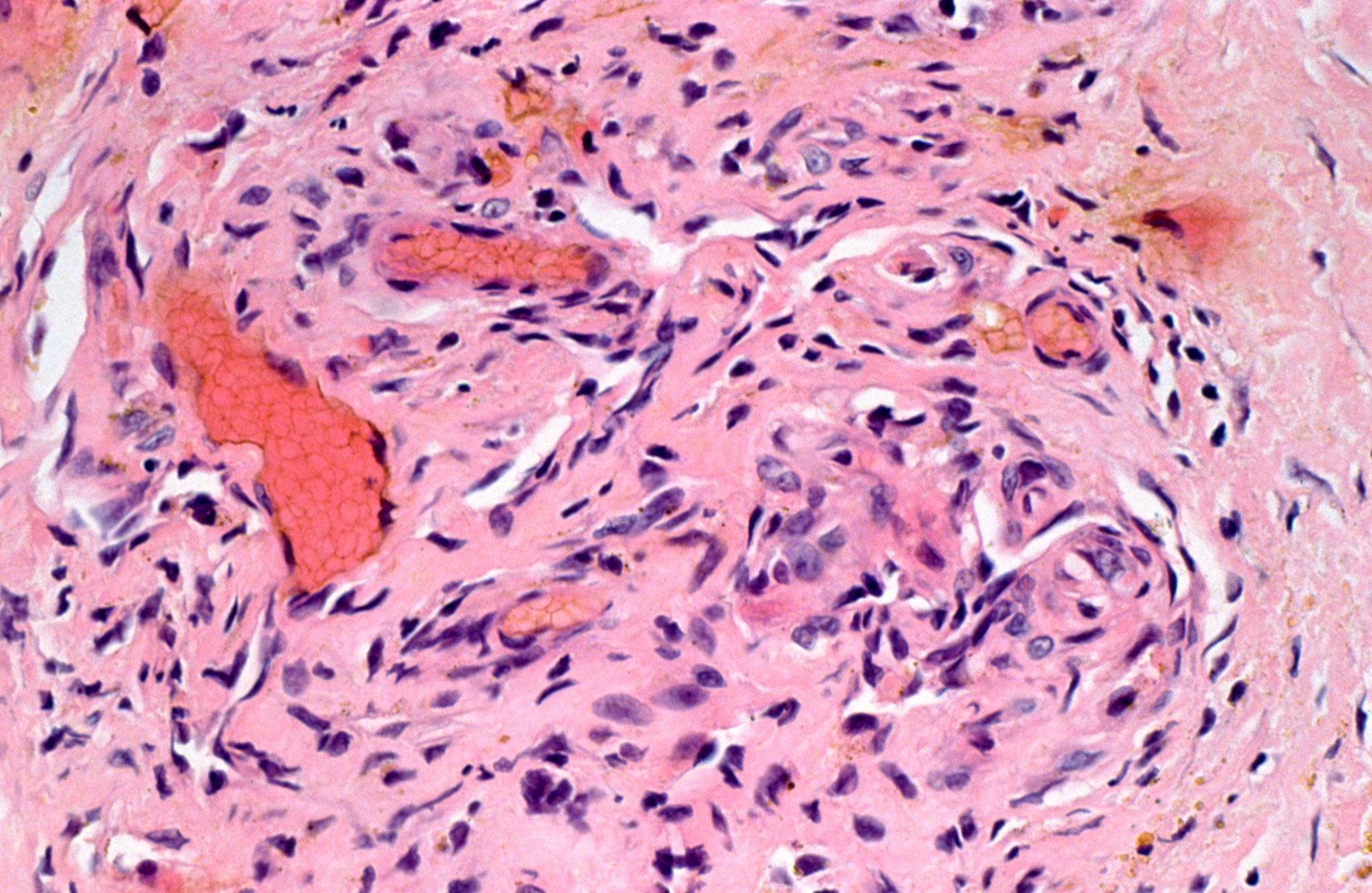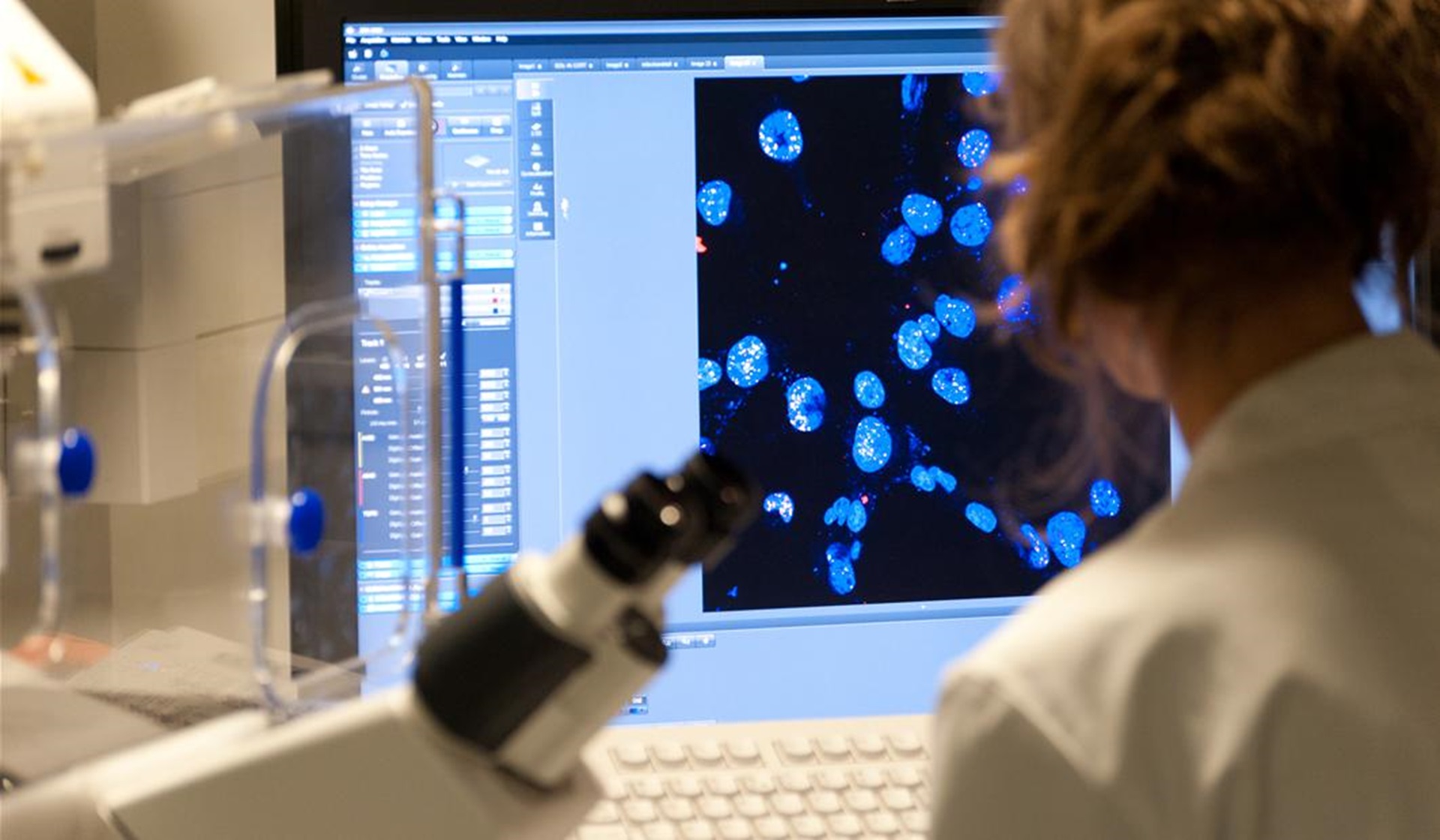Joint Sarcoma Research Centre
The Joint Sarcoma Research Centre, a virtual research centre and a collaboration between the ICR and The Royal Marsden NHS Foundation Trust, is driving pioneering research for innovative treatments for sarcomas.
Sarcomas are a group of more than 100 different rare cancer types that affect connective tissue, such as muscle and fat.
They represent one per cent of cancers in adults, but 15 per cent of cancers in children and young people – and they are associated with considerable morbidity and mortality. Survival rates haven’t improved in decades, so there is a pressing need to develop new treatment and individualised therapy.
The Joint Sarcoma Research Centre has been driving pioneering research for innovative treatments for sarcomas since its launch in 2019. It is a virtual research centre and a that encompasses all research on sarcoma from the Institute of Cancer Research and The Royal Marsden NHS Foundation Trust.
How we research at this centre
The Centre's ambition is to develop a sustainable and world-leading research portfolio that aligns with the research strategies of the ICR and The Royal Marsden, including precision medicine in sarcoma clinical trials, early detection, immune and targeted therapies, imaging, radiotherapy, and molecular pathology.
The Royal Marsden has two main units involved in treating sarcoma patients that are closely linked to research activities in the ICR:
- The Sarcoma unit is one of the largest sarcoma units in Europe, treating around 20 per cent of the UK adult sarcoma patient referrals every year. It also has one of the largest sarcoma tissue archives in the world, making it a rich resource for research in this group of rare cancers. The Sarcoma unit's prospectively maintained database is a valuable resource for researching the outcomes of very rare sarcoma subtypes.
- The Children and Young People’s unit is one of the largest comprehensive cancer centres for young people in Europe where, in contrast to adults, young patients with sarcomas make up a high percentage (15%) of patients with cancer. The Children and Young People’s unit also has the largest paediatric inpatient drug development programme in the UK and is recognised as a world leader. Together with the ICR, we are involved with national and international groups and have leading roles in the latest international clinical trial for rhabdomyosarcoma, the most common soft tissue sarcoma in children and adolescents.
The Joint Sarcoma Research Centre includes scientists and clinicians who are active in sarcoma research across the two organisations.
Our co-directors are Professor Janet Shipley, Professor of Molecular Pathology, and Professor Robin Jones, Head of the Royal Marsden Sarcoma Unit, Consultant Medical Oncologist at The Royal Marsden and leader of the Sarcoma Clinical Trials Group at the ICR.
Our Deputy Director is Professor Paul Huang, Professor in Molecular and Translational Oncology at the ICR.
- Within the Joint Centre, we leverage on the strengths of the ICR and The Royal Marsden to undertake transformational sarcoma research that promotes forward and reverse translation, with the ultimate goal of improving cure rates and reducing treatment associated toxicities in these rare cancers.
- The centre also provides a forum to enhance collaborations between clinicians and translational and basic scientists. It is our firm belief that only through collaborative research can we deliver practice-changing discoveries for patient benefit.
- The centre will foster a framework for training the next generation of sarcoma researchers. We have trained a succession of fellows who are now sarcoma consultants worldwide. We will build on this track record to train the next generation of clinicians and researchers who are fluent in translational and multi-disciplinary sarcoma research.
The major focus of the Joint Sarcoma Research Centre is on adult soft tissue sarcomas (STS), paediatric and teenage and young adult (TYA) sarcomas. The research strategy and investigators within the centre are align with four key cross-cutting themes:
- Medical oncology and cancer therapeutics
- Radiotherapy, imaging and surgery
- Molecular pathology
- Novel disease models and technologies
Both the ICR and The Royal Marsden have significant strengths in sarcoma research and treatment, and working together we can overcome some of the classical barriers associated with making progress in the biological understanding and treatment of these low incidence cancers.
Core investigators
Co-Director
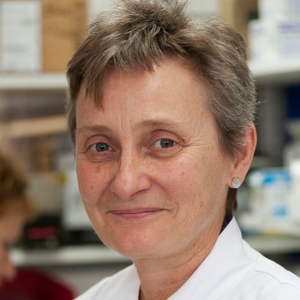
Professor Janet Shipley is Head of the Division of Molecular Pathology and leads the Sarcoma Molecular Pathology Team at the ICR. Her research is focused on identifying molecular markers of high-risk in young onset sarcomas and understanding associated molecular mechanisms in order to derive novel treatments for these patients.
Co-Director
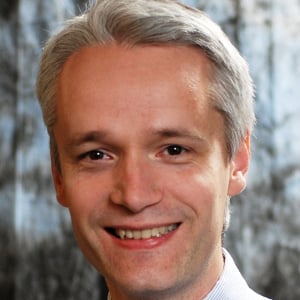
Professor Jones is Consultant Medical Oncologist and Professor at the Royal Marsden and the ICR. He is a medical oncologist with a specialist interest in bone and soft issue sarcomas. He has been a leading investigator on a number of trials of investigational agents in sarcomas, including trials that led to the FDA approval of avapritinib, ripretinib, trabectedin and tazemetostat.
Deputy Director
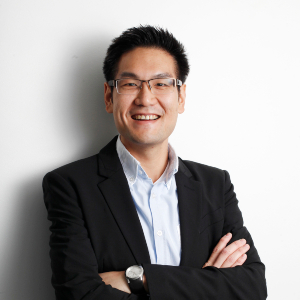
Dr Paul Huang leads the Molecular and Systems Oncology Team in the Division of Molecular Pathology at the ICR. His laboratory focuses on understanding aberrant signalling networks and drug resistance in sarcomas, with the goal of developing biomarkers and new therapies for this complex group of rare diseases.
Research objectives
Patients with sarcoma have poor survival overall, and after surgery 50% see their disease spread to other organs, at which point it is incurable. Clinicians have had limited success with a ‘one-size-fits-all’ approach using pre-operative chemotherapy, and more personalised treatments are needed.
The core objectives of the Sarcoma Accelerator Consortium are to:
- improve cure rates in adult patients with high-risk sarcomas
- identify new drug targets for the neoadjuvant setting
- develop pre-clinical models for understanding disease biology
- and have patient-centred involvement through mobile app development for predicting disease relapse.
Co-investigators
The Sarcoma Accelerator Consortium includes teams based at the Institute of Cancer Research and Royal Marsden, University of Birmingham and The Queen Elizabeth Hospital, University of Glasgow, Beatson West of Scotland Cancer Centre, NHS Greater Glasgow and Clyde, University of Edinburgh and Edinburgh Cancer Centre, Fondazione IRCCS – Istituto Nazionale dei Tumori – Milano, Instituto de Biomedicina de Sevilla and Hospital Universitario Virgen del Rocio.
Our five-year project - the Sarcoma Accelerator Consortium - aims to produce a digital hub of clinical and research data on sarcomas, as well as cellular and animal models. This digital hub will help us predict and test patient responses to drugs for high-risk sarcomas using artificial intelligence.
The consortium is led by Professor Robin Jones, co-director of the Joint Sarcoma Research Centre at The Royal Marsden NHS Foundation Trust and the ICR.
The Sarcoma Accelerator Consortium is a multi-disciplinary and international team funded by Cancer Research UK and its European partners, Fondazione AIRC and Asociación Española Contra el Cáncer (AECC), through the Accelerator Awards scheme.
ICR / The Royal Marsden
Professor Robin Jones | Dr Christina Messiou | Dr Paul Huang | Dr Yinyin Yuan | Dr Matthew Blackledge | Professor Christopher Lord
University of Birmingham / The Queen Elizabeth Hospital
Professor Andrew Beggs | Mr Anant Desai
University of Edinburgh / Edinburgh Cancer Centre
Professor Valerie Brunton
University of Glasgow / CRUK Beatson Institute / NHS Greater Glasgow and Clyde
Dr Ioanna Nixon | Mrs Andrea Harkin | Mrs Carol Evans | Mrs Caroline Kelly
Fondazione IRCCS – Istituto Nazionale dei Tumori – Milano
Dr Alessandro Gronchi | Dr Nadia Zaffaroni | Dr Sandro Pasquali
Instituto de Biomedicina de Sevilla / Hospital Universitario Virgen del Rocio
Professor Javier Martin Broto | Dr Joaquin Dopazo
